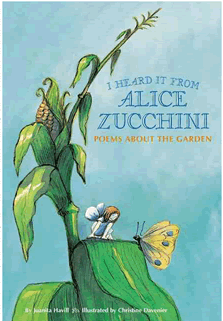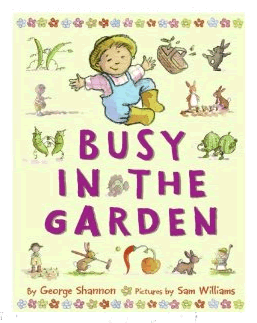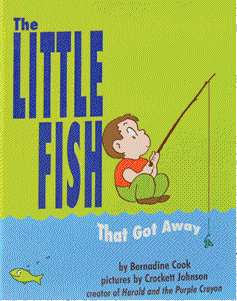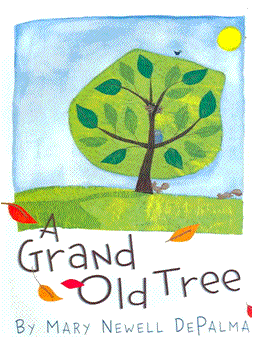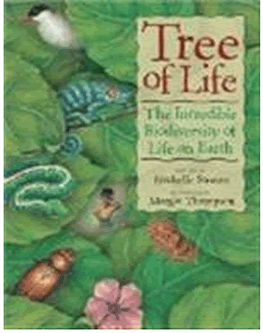题目内容
Life on earth depends on water, and there is no substitute for it. The current assumption is that our basic needs for water — whether for drinking, agriculture, industry or the raising of fish will always have to be met . Given that premise (前提), there are two basic routes we can go: more equal access to water or better engineering solutions.
Looking at the engineering solution first, a lot of my research concentrates on what happens to wetlands when you build dams in river basins, particularly in Africa. The ecology of such areas is almost entirely driven by the seasonal changes of the river — the pulse of the water. And the fact is that if you build a dam, you generally spoil the downstream ecology. In the past, such problems have been hidden by a lack of information. But in the near future, governments will have no excuse for their ignorance.
The engineers’ ability to control water flows has created new kinds of unpredictability, too. Dams in Africa have meant fewer fish, less grazing and less floodplain (洪泛区) agriculture — none of which were expected. And their average economic life is assumed to be thirty years. Dams don’t exist forever, but what will replace them is not clear.
The challenge for the future is to find new means of controlling water. Although GM technology (转基因) will allow us to breed better dry-land crops, there is no market for companies to develop crops suitable for the micro-climates of the Sahel and elsewhere in Africa. Who is going to pay for research on locally appropriate crops in the Third World?
1.What’s the main idea of this passage?
A.The engineering solutions to water resource and their limitation.
B.The challenge for the future.
C.The basic means of controlling water.
D.The challenge for developing crops.
2.Which of the following statements is NOT true for meeting our basic needs for water?
A.Water resource should be used more reasonably.
B.More dams should be built in river basins.
C.More wetlands should be protected from destruction.
D.More dry-land crops could be developed in Africa.
3.The author suggests that governments will have no excuse for their careless ignorance in the future because .
A.The ecological destruction will be known to the public by researchers
B.The ecological destruction will no longer be a problem in the future
C.The future is an information age
D.Governments will face greater challenge in the future
4.The author mentions all the problems caused by dams EXCEPT .
A.fewer fish B.less grazing land C.less floodplain agriculture D.less farming land
5.The last sentence probably implies that .
A.No one will invest in developing locally appropriate crops in Africa
B.Researchers have no interest in developing dry-land crops
C.Research on locally appropriate crops in the Third World may be profitable
D.There is less water resource in the Third World
ABCDA

Lexi Peters, a 14-year-old girl in New York, loves hockey. She’s not only good at playing on her after-school team, but also at playing hockey video games. But when Peters played the popular NHL (National Hockey League) games made by Electronic Arts, something really bothered her. The virtual (虚拟的) character in the game could only be a boy — not a girl.
She didn’t think that was reasonable. There must be many girls playing hockey in the US. So she wrote a letter to Electronic Arts.
“Being represented by a man is unfair to women and girl hockey players,” Peters wrote. “Women’s hockey is a fast-growing sport. I am confident that I’m not the only woman interested in the opportunity to create herself in the game.”
Several weeks later, Peters received an unexpected e-mail from the senior producer for EA Sports’ NHL games, David Littman. “Hi, Lexi,” the e-mail began. “We agree with you!”
Electronic Arts said it would create a female player in the game. “I was thinking you could be the model,” Littman wrote. Peters almost couldn’t believe it. Later, she sent photos of herself taken at all different angles (角度).
And so, when Electronic Arts released the newest version of their game, NHL 12, this fall, Peters was the face of the female player. She can now skate with the NHL’s great players. “It’s strange at first, but you get used to it,” said Peters. “It’s really funny and cool.”
For Peters, there is also an important lesson that she will take with her the rest of her life. “If you have something to say, and you think it’s important, go for it!” she said.
【小题1】What bothered Peters when playing NHL games?
| A.There was no girl character in the game. |
| B.The characters were not real at all. |
| C.No girls would like to play the game. |
| D.It was not like playing real hockey games. |
| A.girls were not allowed to play hockey in the past |
| B.female players can be represented by men |
| C.boys don’t like to play hockey with girls |
| D.more and more girls are interested in hockey |
| A.He ignored it. | B.He disliked it. |
| C.He agreed to it. | D.He voted against it. |
| A.enjoy the fun of being a model |
| B.do what you think important to do |
| C.work hard to get used to any new situation |
| D.think about problems from different angles |
Read the following text and choose the most suitable heading from A-F for each paragraph. There is one extra heading which you do not need. F=A+E
A. Hoping to enjoy the fun of college life again
|
94. ___________
![]() After four years, the time has come. In less than two weeks, I will have graduated. I look back now and I can't believe how fast it all went. I can still remember the first day of classes, looking on the map on the back of the Schedule of Classes and asking where the classroom building was. Now I'm a senior, looking at freshmen with envy. Every day I wish I could freeze time, and make the next two weeks go more slowly. I know a lot of people who can't wait to graduate, but for me it's the opposite. I want to turn back time instead and cherish every day of my college experience once again.
After four years, the time has come. In less than two weeks, I will have graduated. I look back now and I can't believe how fast it all went. I can still remember the first day of classes, looking on the map on the back of the Schedule of Classes and asking where the classroom building was. Now I'm a senior, looking at freshmen with envy. Every day I wish I could freeze time, and make the next two weeks go more slowly. I know a lot of people who can't wait to graduate, but for me it's the opposite. I want to turn back time instead and cherish every day of my college experience once again.
![]() 95. ____________
95. ____________
![]() For me, college has been a great learning experience, and most of the learning process has taken place outside of the classroom. My second year of college was perhaps the most remarkable year of my life. This was the year that I finally convinced my mom that I was going to be OK living on campus, and she finally let me go. This was the year that I made some lifelong friends, and through many triumphs and failures I came to know more about myself. My second year involved experimenting with new things, such as camping in mountains, attempting to present some lousy poems to newspapers and drawing cartoons of my teachers in class.
For me, college has been a great learning experience, and most of the learning process has taken place outside of the classroom. My second year of college was perhaps the most remarkable year of my life. This was the year that I finally convinced my mom that I was going to be OK living on campus, and she finally let me go. This was the year that I made some lifelong friends, and through many triumphs and failures I came to know more about myself. My second year involved experimenting with new things, such as camping in mountains, attempting to present some lousy poems to newspapers and drawing cartoons of my teachers in class.
![]() 96. _____________
96. _____________
![]() As I walk down the familiar routes on campus, I find myself doing a lot of soul-searching and reminiscing. I find myself wanting to start all over again and recapture the fun and excitement of my college days. I have been panicking at the idea of graduating. I have been going to school for as long as I can remember, and I feel like there is so much more that I want to learn, but instead I have to graduate. The world is enormous and the possibilities are endless. For the past four years I have been surrounded with a safety net. The student status has been a somewhat comforting feeling, giving me an escape from the realities of the world outside.
As I walk down the familiar routes on campus, I find myself doing a lot of soul-searching and reminiscing. I find myself wanting to start all over again and recapture the fun and excitement of my college days. I have been panicking at the idea of graduating. I have been going to school for as long as I can remember, and I feel like there is so much more that I want to learn, but instead I have to graduate. The world is enormous and the possibilities are endless. For the past four years I have been surrounded with a safety net. The student status has been a somewhat comforting feeling, giving me an escape from the realities of the world outside.
![]() 97. _____________
97. _____________
![]() With less than two weeks left of school, I'm getting a queasy feeling deep down every time I think about the fact that I'm going to be graduating. For as long as I can remember, I have been a student. I feel like I'm living in denial about graduating. Every time I get asked about what I'm going to do after college I feel like screaming at the top of my lungs. I don't know what I want to do with the rest of my life. It's too difficult to even contemplate the idea that soon I will be waking up in the mornings and not have a class to which I should be going.
With less than two weeks left of school, I'm getting a queasy feeling deep down every time I think about the fact that I'm going to be graduating. For as long as I can remember, I have been a student. I feel like I'm living in denial about graduating. Every time I get asked about what I'm going to do after college I feel like screaming at the top of my lungs. I don't know what I want to do with the rest of my life. It's too difficult to even contemplate the idea that soon I will be waking up in the mornings and not have a class to which I should be going.
![]() 98. ______________________________
98. ______________________________
![]() On a recent interview, I was asked, "Is this the profession you want for the rest of your life?" I was amused and almost laughed at the question, but I gave an honest answer. I don't know what the future holds. During the last four years I have changed my mind so many times, the idea of a lifetime commitment to a certain job seems like torture.
On a recent interview, I was asked, "Is this the profession you want for the rest of your life?" I was amused and almost laughed at the question, but I gave an honest answer. I don't know what the future holds. During the last four years I have changed my mind so many times, the idea of a lifetime commitment to a certain job seems like torture.
